Our universe is absolutely fascinating. Part of the reason why is that no matter how much you learn about it, there is still plenty left to uncover, which includes all sorts of wonderful things, as well as the scary stuff.
The scary stuff is what we’re focusing on today. After combing the internet, we have found an abundance of comments about the creepiest and weirdest science facts netizens have ever heard. So, if you’re curious to learn more about our universe or simply drawn to spine-chilling stories, don’t hesitate to delve deeper and find the fascinating facts on the list below. Happy scrolling!
#1
That we didn't even discover 10% of our ocean.
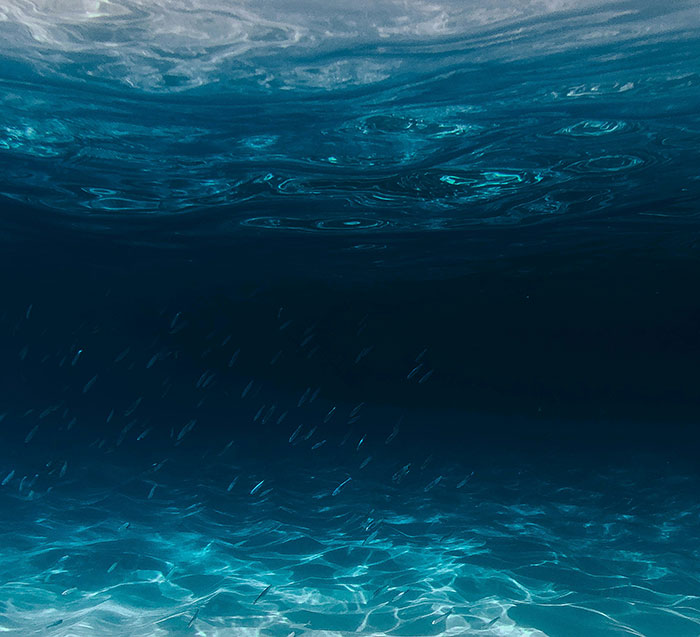
Image credits: AdministrativeLuck49
#2
That 20–25% of people in comas are awake and aware but just can’t move.
Imagine just lying there, trapped in the prison of your own mind. I’d rather not.

Image credits: Cecil B
#3
The exact middle of nowhere is 48°52.6′S 123°23.6′W. It's a spot in the Pacific Ocean named [Point Nemo](https://oceanservice.noaa.gov/facts/nemo.html) that's 2688 km (1451 nautical miles) from nearest land.
It's roughly between New Zealand and South America. More specifically Point Nemo is between the Easter Islands, the Pitcairn Islands, and Antarctica.
Suppose you were in a ship that sank at Point Nemo and you had to climb into a life raft. If you were on your own without a radio, just paddling and collecting rainwater and catching fish, then if you could travel 20 miles a day it would take two and a half months to reach nearest land...
...if you navigated perfectly.
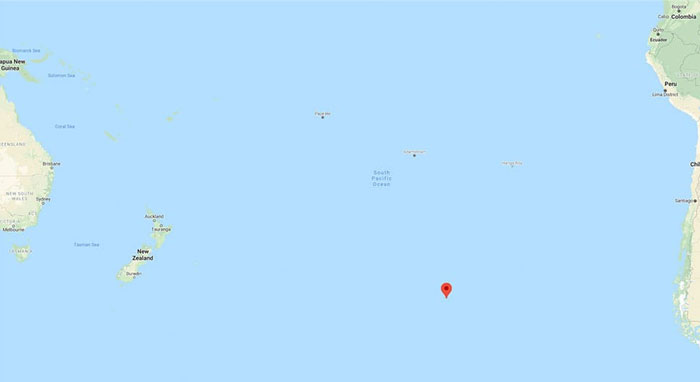
Image credits: doublestitch
#4
There's stars below you right now. There is no true "bottom" of things.
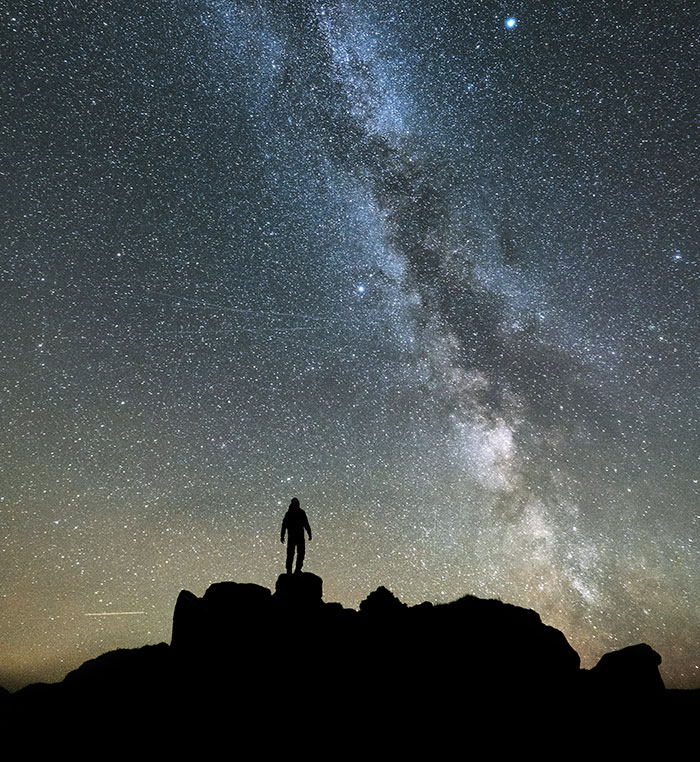
Image credits: LollipopDreamscape
#5
There are individual stars that are bigger than the distance from the earth to the sun.
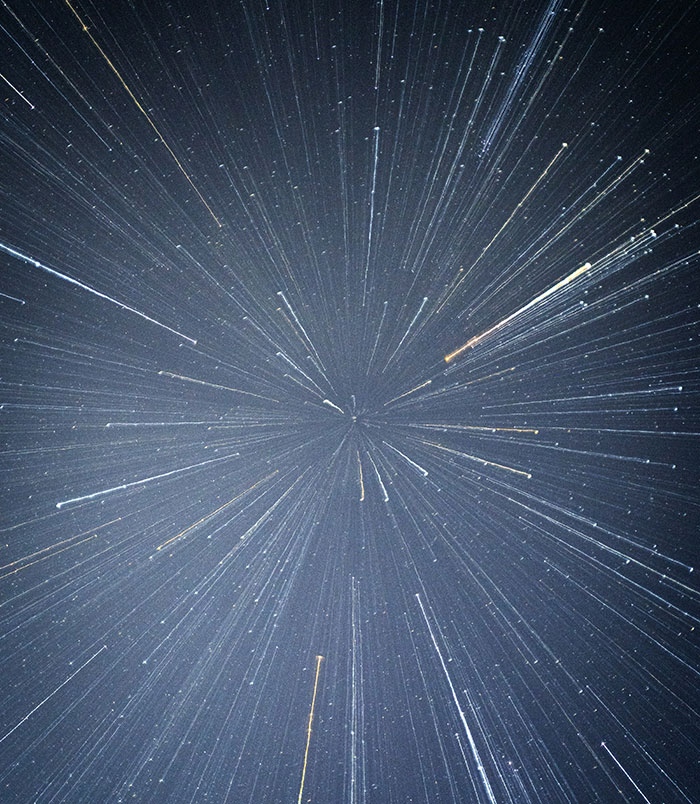
Image credits: anon
#6
*there are no baby butterflies*. Think about it, they’re caterpillars, then they’re butterflies so there’s no such thing as a baby butterfly... idk why, that just disturbs me a little.
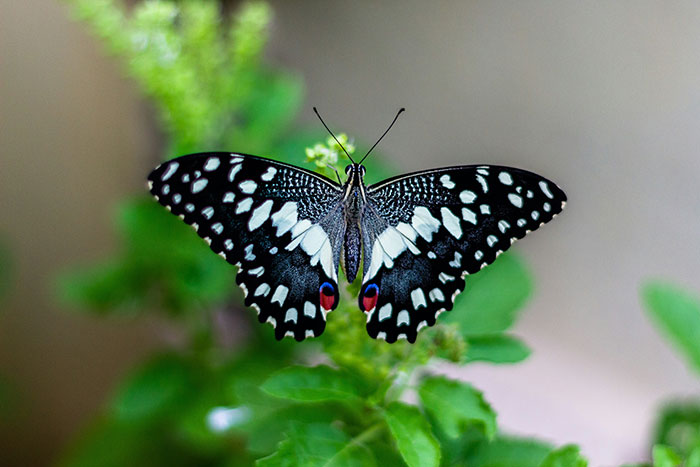
Image credits: Benob2007
#7
There's millions of black holes that are millions of times bigger than the earth that are just randomly hurdling through space at insane speeds like pinballs in a pinball machine, sleep tight!
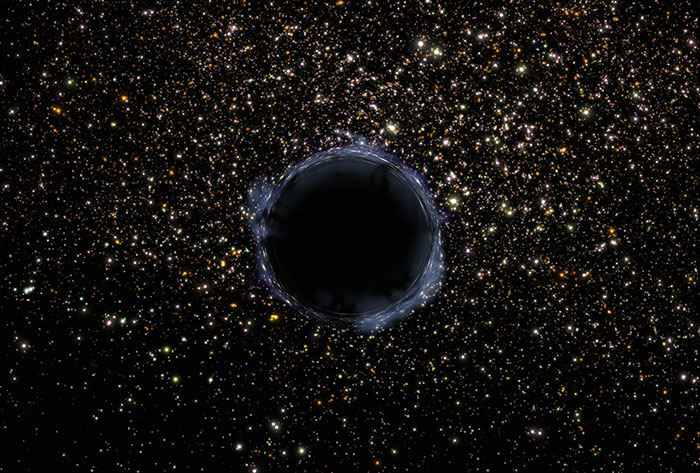
Image credits: ay-aye-ron
#8
It's been suggested that the reason we have no evidence of intelligence beyond our planet is not the vast distances, but the brief blip of time intelligence exists before destroying itself isn't long enough for two distinct space-faring cultures to interact.
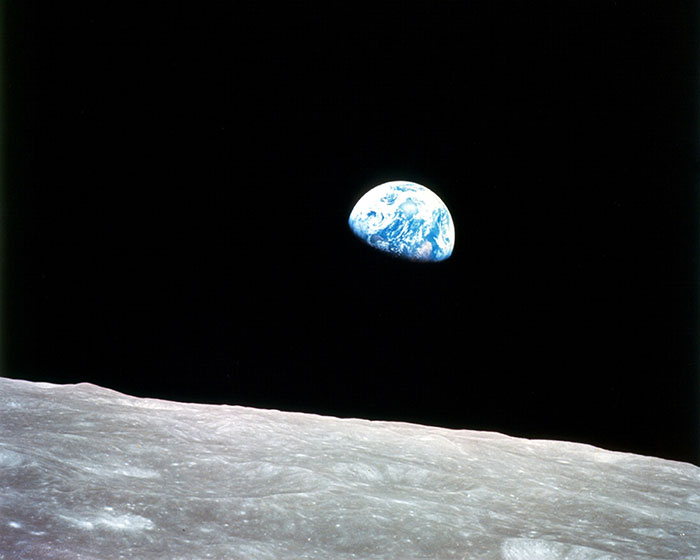
Image credits: Aiged
#9
That objects don’t actually have color. Our eyes just assign a color to the wavelength of light an object reflects.
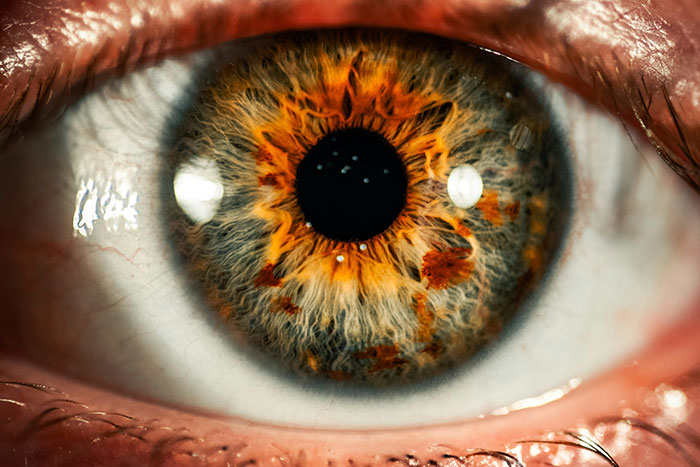
Image credits: CreamyOreo25
#10
Crocodiles can climb trees. While they might not look like a climber, they certainly can climb trees.
In a study conducted by the University of Tennesse, it was confirmed that four different crocodile species, found in Australia, Africa, and the Americas, are all able to climb, some as high as 4m, where they were observed basking in trees. They mostly do this to bask in the sun, or to survey territory for predators, prey, or for other competitor crocodiles.
Imagine that you’ve got a crocodile chasing you and you climb a tree to escape from it. When you reach above, you find one already waiting for you there. He’ll say to you:
Dread it. Run from it. Destiny still arrives.
Or imagine that you decided to get some rest under a tree and one of them decides to jump on you from above screaming:
Surprise, motherf**ker!
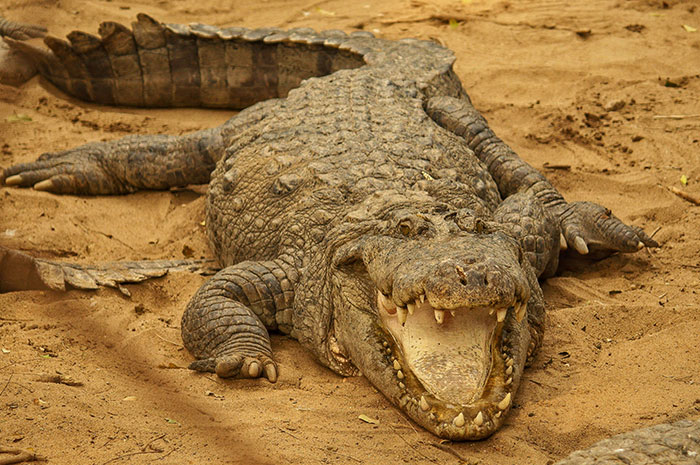
Image credits: Parth Dutt
#11
Science doesn't scare me. It is the social problems caused by those who deny the oneness of the human family that scare me.
For thousands of years we have been warring tribes arguing over pieces of dirt, each tribe thinking they should be more privileged than the next.
It is time for the human family to unite and celebrate it's diversity. Those who denigrate the cultures of others scare me.

Image credits: Ron Frazer
#12
The distance between the deepest part of the ocean and the top of Mount Everest is only about 12 miles (~20 Km).
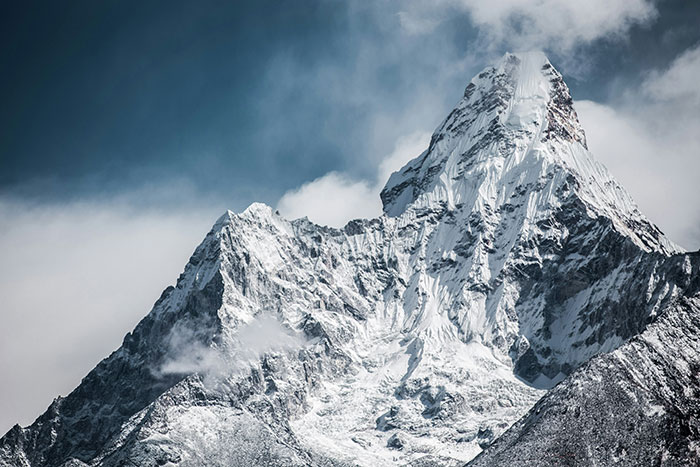
Image credits: IntelligentBuffalo79
#13
There is a squid called the bigfin squid that we’ve only seen 3 times. Their tentacles are so long they reach to the seafloor. About 20-26ft long and scientists say the ones we’ve seen are more than likely not adults. They even have elbows. We don’t really know much about them since they are rarely seen. Look on google and you’ll see how scary they are. And yes they are in the deep, deep ocean approx 5000ft deep.
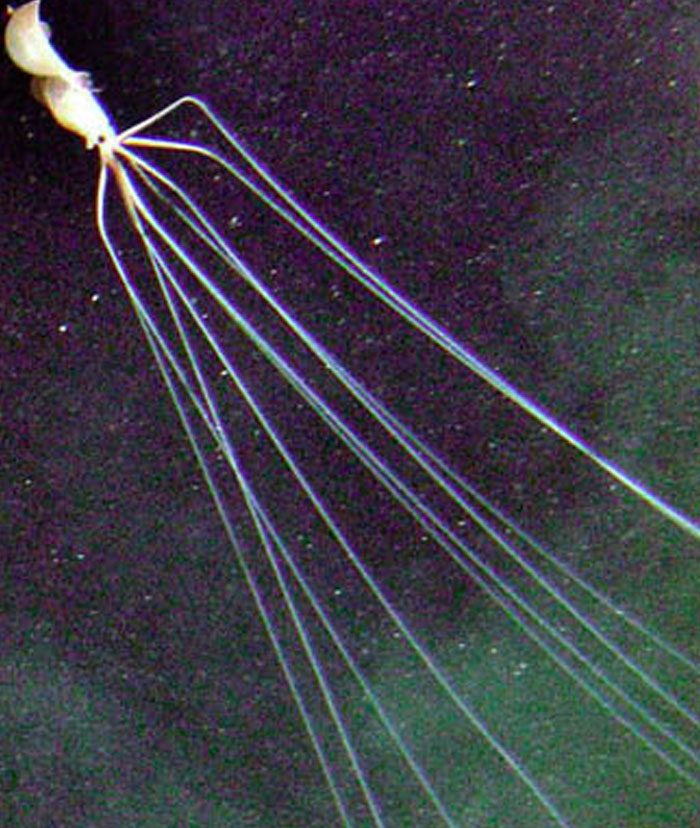
Image credits: anon
#14
Super flares happen on every star. Which includes our own sun, but since the sun is a rather old and quiet star, it only happens every other 1000 years or so. But they happen, and it's not a matter if, but when it happens.
A superflare from the sun wouldn't be that deadly and devastating as it sounds, but it would be enough to roast sattelite communication, cause global blackouts and a thick layer of radiation around earth.
Scientists guess the next super flare will occur within the next 100 years.
Anyway, have a nice day.

Image credits: myhamsterisajerk
#15
The surface of Mercury can reach lows of -290F -180C despite being so close to the sun.
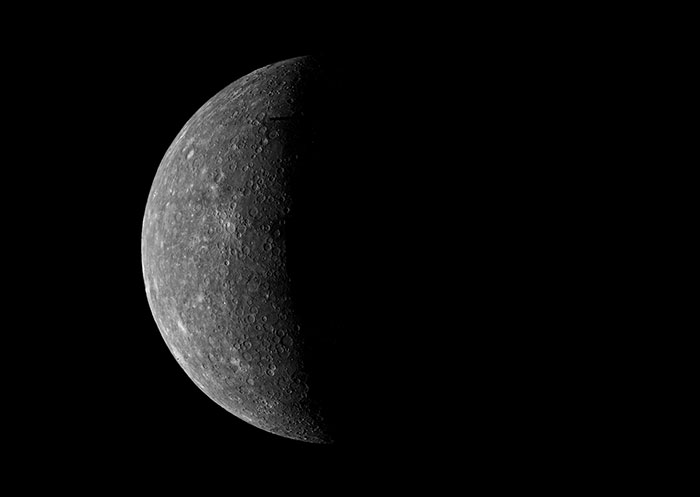
Image credits: anon
#16
There's no reason in physics why time has to flow forwards. It's just how our brains observe it.

Image credits: Jimmyg100
#17
A gamma ray burst (GRB) could wipe all life from the face of the Earth at any time with little to no warning.
GRBs are intense blasts of radiation that stream into space when a star explodes, traveling at 99.99% the speed of light. GRBs are well known to astronomers and have been spotted in different galaxies.
If you're on the side of the planet facing the GRB, it would be like getting caught in a nuclear blast thousands of times stronger than all the nuclear warheads on Earth combined. If you happen to be on the other side of the planet, you'll simply burn to death from radiation as the atmosphere disintegrates and all the gamma-rays liquefy your cells. A near miss GRB, which means the stream of radiation just grazes the Earth, will still be fatal, but the resulting death will be slower as the ozone layer burns up and our ecosystem is destroyed.
It has been calculated that every 5 million years or so, a gamma ray burst goes off close enough to harm life on Earth. GRBs may have caused some of the extinction events that have occurred in the Earth’s past. GRB’s have possibly sterilized the planet before and they could do it again.
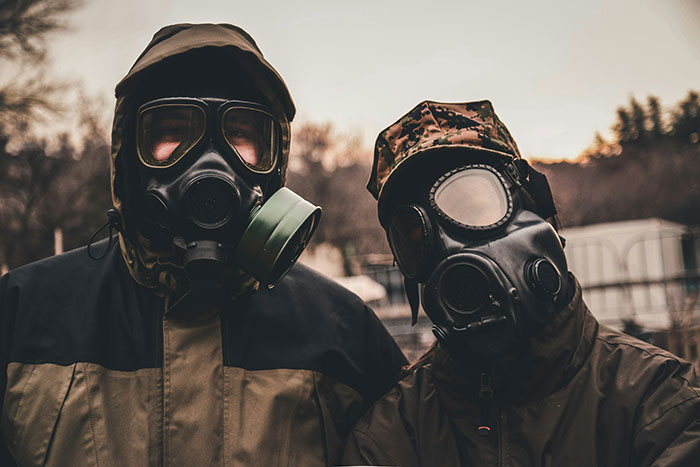
Image credits: Robert C.
#18
This is more interesting than weird, but I'll say it anyway
Theoretically, if an alien living on a planet 200 million light years away had a device by which they could view Earth, due to the 200 light years gap in light reach, instead of seeing humans through the device, aliens would instead see dinosaurs from the Jurrasic Period since that's the era from which the light has reached till that point.
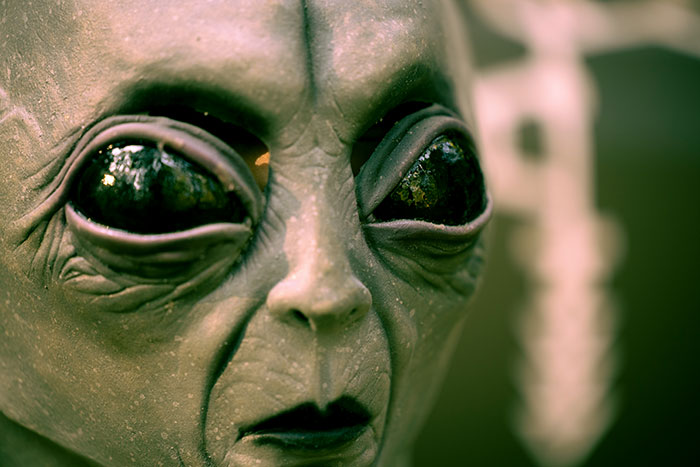
Image credits: DesignerRead2198
#19
Eventually (due to the expansion of the universe) nothing will be visible outside our galaxy
This will take a *very* long time tho.
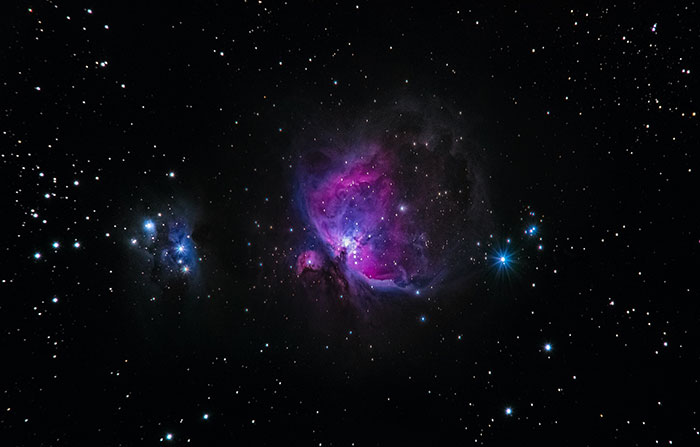
Image credits: SavageCabbageGG
#20
It seems like most things in here about space but really the depth and amount unknown about the ocean is insane. The Mariana Trench is 6 miles deep.
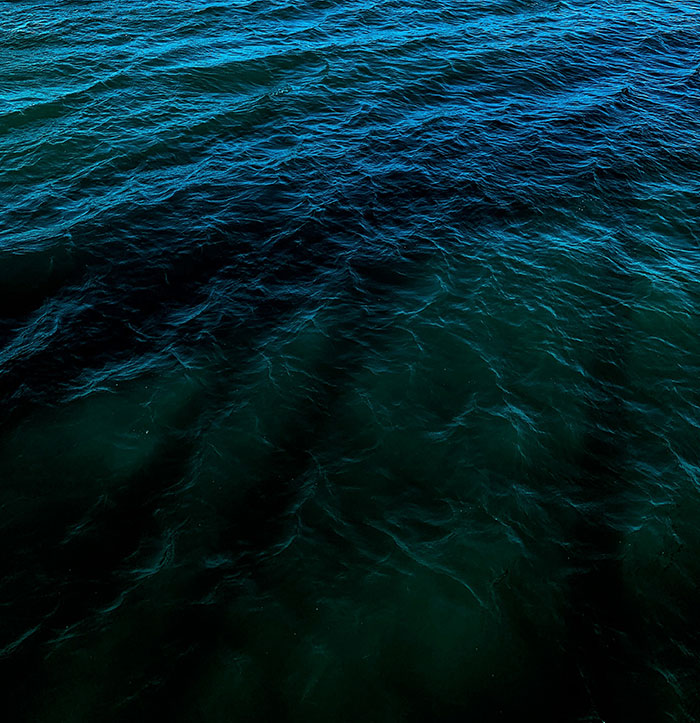
Image credits: anon
#21
“Lost” cosmonauts. The idea that the Soviet Union sent up cosmonauts secretly and they got out of orbit and floated away to their death. This is still a theory, since the Soviets/Russians never publicly confirmed it.
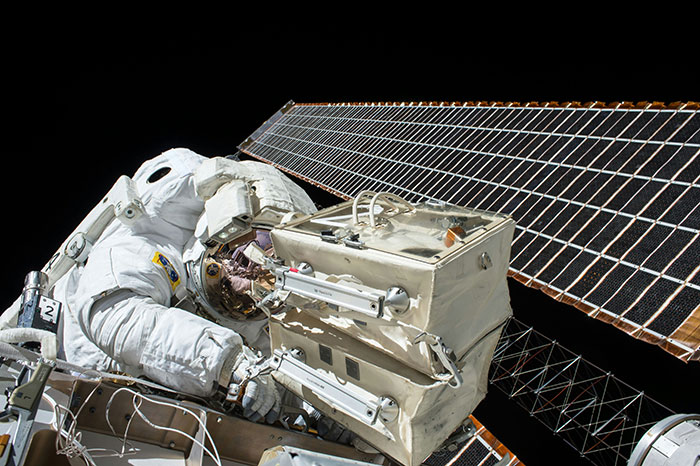
Image credits: konfetkak
#22
Fact 1) Antipoles are 2 points on the Earths surface that are diametrically opposite. If I stood on the North Pole, the South Pole is my Antipole.
Fact 2) The Pacific Ocean is so big, it contains its own Antipole.
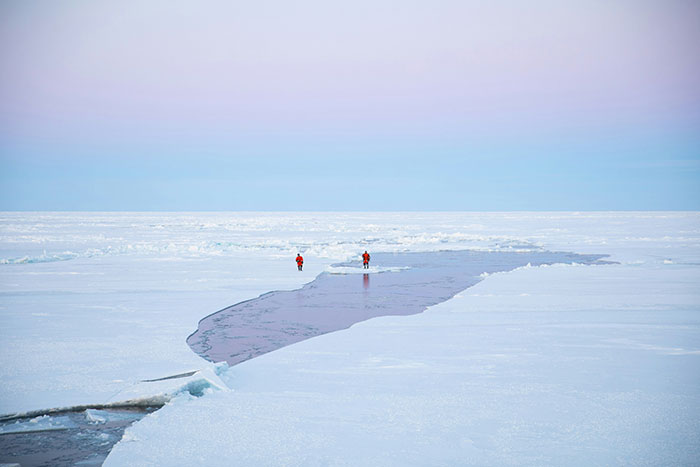
Image credits: Desperate-Record1135
#23
Deep Sea Giantism.
There are species that live deep underwater that are massive compared to their shallow water counterparts.
The only way we've come across them is when they've washed up on shore or were caught by fisherman because they wandered into more shallow water.
But we really have no idea what the scope or scale of how large these creatures can get because we can't study them at the depth in which they live. For all we know, the found creatures were babies that were separated from their mothers.
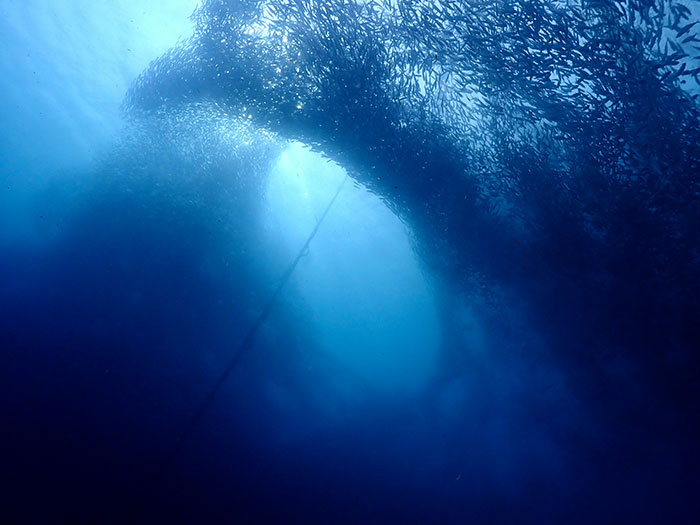
Image credits: dawrina
#24
Yet one more thing to worry about due to global warming: The defrosting, reviving, and unleashing of viruses trapped in the permafrost when the ice melts and the ground thaws. What this will do to world health is currently unknown, but it won’t be pretty. It will make COVID look like the 24-hour croup.
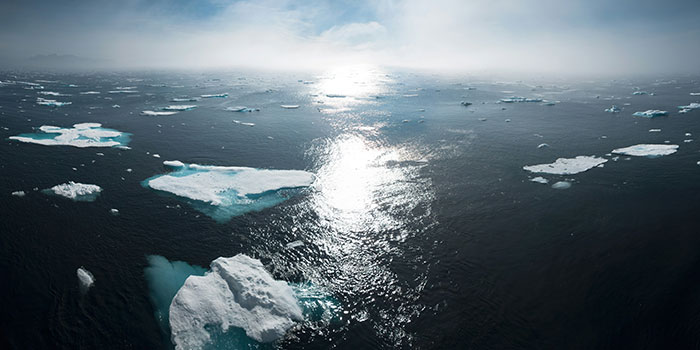
Image credits: Carol Cotton
#25
A friend of mine who builds custom pools and hot tubs told me that despite building them, he would never get into a hot tub because the high water temperature causes your body to release fluids such as sweat AND pee through your pores. Gross, huh?
Researchers at the University of Alberta in Canada recently developed a rapid test that looks for an artificial sweetener called acesulfame potassium, or ACE, in the pool and hot tub water. The sugar substitute is not destroyed or altered when coursing through our digestive system, meaning if you eat some and then pee it out, it’s going to be fully intact into whatever body of water you let loose in.
To test their new test, they tested 31 active pools and hot tubs in two Canadian cities, along with the tap water used to fill the basins. They found up to 570 times more ACE in the pool and hot tub water than clean tap water, and estimated that over 7 gallons of urine—equivalent to a medium-sized trash can—was in a 110,000-gallon pool, and almost 20 gallons in a large pool filled with 220,000 gallons of water. One hotel hot tub had approximately three times more urine in it than the worst swimming pool tested.

Image credits: Brad Crawford
#26
232 million years ago it rained for about 1-2 million years non stop.
Edit: my reference https://youtu.be/_1LdMWlNYS4
Edit: few more interesting facts
There have been tsunamis called mega tsunamis as high as hundreds of meters. In 1958 there was one in Lituya Bay over 500m(1700ft). Cowabunga!
The pillars of creation is massive. The height of one of the pillars is 4 light years. An endless road trip for us!
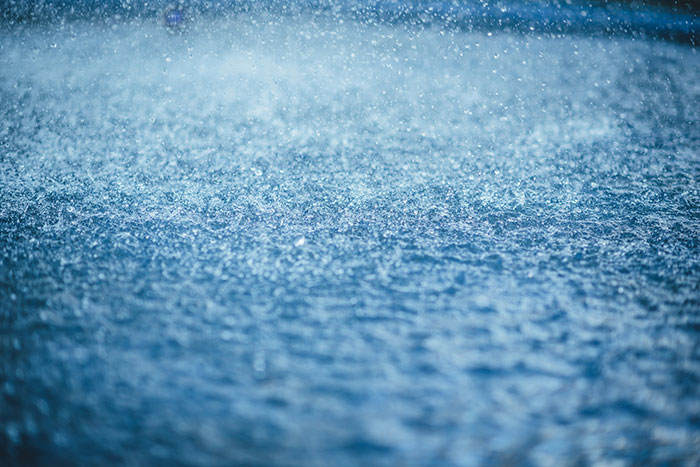
Image credits: WebCapable9924
#27
The further away a galaxy is, the smaller it looks to us. That makes sense. However there comes a point beyond which the further away it is the LARGER it looks. That's because when the light left it, the universe was smaller, the galaxy was closer, so it filled a larger area of sky.
Source: The End of Everything: (Astrophysically Speaking) by Katie Mack.
#28
In our galaxy, a star goes supernova roughly once every 50 years. That seems to be the universal average rate of galaxies having stars going supernova. There are so many galaxies in the known universe that there are roughly 50 stars turning into supernovas every second.
#29
Does it not just haunt you guys that (given you're in the right geographical area) a major earthquake could occur at any time without warning, or even Yellowstone in the US. No one can know how devastating it'll be, and for all you know you're just waking up to a regular day, having your morning coffee, feeding the cat, and then boom. You lose everything.
#30
Time is just a social construct created by humans. Although according to Einstein's relativity theory, time is apart of the physical make up of our world. There a different theories about space-time. But that's the thing, they are just theories. We don't know for sure how time works. The theory that spooks me out the most is The past, present and future exist simultaneously, so what is going to happen has already happened.
#31
1) One of Saturn's moons is potentially habitable.
2) There is a planet 9 and there is solid evidence of it existing it just hasn't been observed yet. It is on the outskirts of the solar system (oort cloud region) and the voyager 2 took only 9 years to reach pluto but needs 50 years to reach planet 9 which is wild to me and kinda creepy.
3) the oort cloud is about 2-3 light years away from the sun and the closest star is 4 light years away which means the boarder of the solar system is closet to another star system than the sun itself.
#32
Jellyfish are capable of sinking boats:
The giant jellyfish that you see on your screen is known as Nomura’s Jellyfish, which can grow up to 6 ft in diameter and can weigh 400 pounds. They’ve been documented in the Sea of Japan.
As if their enormous size and venomous tentacles weren’t scary enough, they’re also quite powerful. Powerful enough to capsize boats weighing several tonnes. And no, I’m not making this up.
Back in 2009, a Japanese troller that went by the name Diasan Shinsho-maru had captured these fish. However, their power was so enormous that the boat ended up being capsized. Thankfully, the three crew members were rescued by another troller. And if you’re thinking that the boat must have been a small one, then you’re wrong. It weighed 10 tonnes. It was reported that the weather was clear, which means that it was these fish that turned over the boat. [2]
Medusa in Greece would turn people to stone. These Medusas throw them into water (Fun fact: Jellyfish are called medusas in Spanish)
#33
We're all gonna die & many of us will die early, tragically, horribly & painfully.
Sources: every historical reference to anyone's death.

Image credits: Greg Seller
#34
Less scary and more mind-numbingly depressing" is the Dark Era of the universe. When all the star fuel is gone and all the white dwarves have gone cold and dark and all the black holes have evaporated away into elementary particles, the universe will be a cold, dark place... Forever.
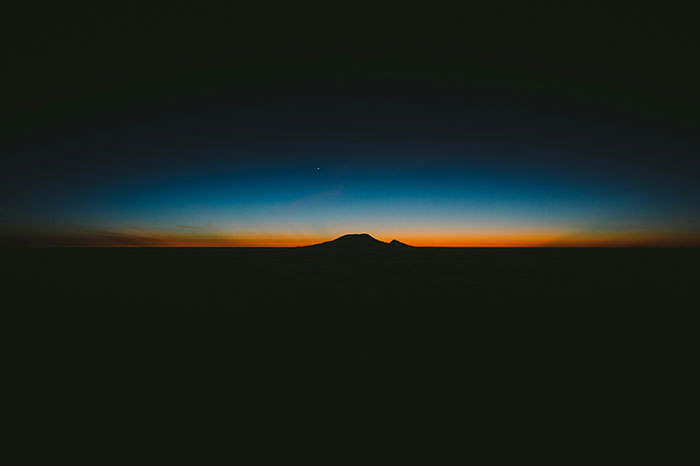
Image credits: Nahean Zaman
#35
I am scared that scientific advancements on robotics and automation will put almost all of us out of job. Even now there are so many people that are out of jobs due to overpopulation, and now they are introducing automation which could replace truck drivers, cashiers, bank tellers, construction workers, drivers, factory workers and many more. Yes the life of those corporation will be much easier due to less expense to pay for people and other benefit, but what will happen to all those average people that only get by everyday by working?
You know what the most scary thing in this world is the self destructive tendency of humanity, humans are the one who makes life harder. Who dictates the price of everything? Who spends almost all their resources to thing we can use just to k*ll each other? who told that a piece of printed paper is more valuable than anything? The answer is humans.
The scariest scientific fact in this world is that human beings are self destructive, We lie, cheat and steal, carve ornamentation into our own bodies, stress out and k*ll ourselves, k*ll others and make life harder for other people just to achieve our own personal status, why do rich people do not just share their blessings even though they have more than they need for the lifetime? because of uniqueness and individualism, we struggle to be an individual. Let us all be honest, everyone will not share their blessings to a hobo or homeless person. Why? because he or she will have the same thing like us. We do not want others have the same education like us, so we make it hard for other people to have access to education, by means of tuition fees, grades and other things, now that i think about it maybe death is really a gift to human kind, ending our never ending want for things, human beings will never be satisfied and that is a fact. I apologize for the long answer, i just get carried away sometimes on how stupid we are, I admit it sometimes the only thing that makes me happy is to have something other people do not have, i think we all do, that is why we spend so much for a new cellphones, clothes, gadgets and other worldly things than to help our fellow people.

Image credits: Arvin Cruz
#36
Even if the moon had a breathable atmosphere the dust in the air would slice the inside of your throat open in seconds.
#37
Trees and plants communicate using their root systems, and they can use chemical signals to spray bugs at you as a defense… and plants know if you have harmed another plant. You can measure their fear response. Scientists have published on this.
Animals can see human intention better than humans can understand their mother tongue. Ask any vet about to k*ll a puppy or dog. Ask farmers, and hunters, and animal experimental scientists who get bit by a rat that knows what happened to his neighbour. Its uncanny.
The planet does not need us/nor do we affect it that much. Sure,we can generate some tsunamis, poison the air and waters, seed clouds, start storms, and frack up some earthquakes, but the earth, it can shake us off like a bad case of fleas Way more easily than our arrogance would have us believe. Do You know what happens before an ice age? The planet warms up in preparation… the ice caps melt away… and BAM! Ice age.
Theres no point trying to terraform the moon or mars. Nor is space travel worthwhile. We will never get very far, and theres nothing of interest in our neighbourhood anyway. However, there Will be a wasteful, corporate sponsored war between the earth and mars, fought in space. The resulting gadgets will make eventual long distance space travel, slightly more interesting. The remaining ‘martians’ just come home. Being born on mars doesnt mean you can survive there for long.
The human race will be obliterated by an ice age, which turns the whole planet into a snow covered popsicle. Even the seas will freeze, nothing can grow, nor survive. We will have a small underground population of 40 people, somewhere in the midwest of the american continent. 20 of whom go into space, and 20 of whom stay on earth. Both sets die out in a few lifetimes. Theres just less and less people in each generation, and thats it. No more humans.
The multiverse described by physics is what we visit in our dreams. In the vast multiverse, where the physics are slightly different in each universe, Everything you can imagine exists/happens in at least one of them. There is a ‘you', in each universe too - thats how you get dreams. By visiting 3 other universes each night. The feeling of de ja vu, is another ‘you', visiting This reality, and seeing a warped version of whats going on in your life. Attempts to physically visit other universes will fail, and hilariously so, because the multiverse is not spread out, like a mosaic. Its all right here, right now, in layers, whirling around this very same earth, only whispers away. Anyway, how could you possibly visit other universes so easily in your sleep? You'd need serious, space jumping powers, which, star tv and movies aside, never happens in This reality. Ours is a fairly mundane version of events. And even in space jumping realities, people cannot move beyond the bounds of their version of the universe, because gravity’s reach and light both give out, meaning you are trapped. Or you’ll get sucked into nothing.
I know this is not all current/ contemporary scientific fact, but technically, it all will be soon enough, so i'm going to include all of it under that banner.
Like someone in the dark ages saying: “the earth moves around the sun!”, i will just have to wait. I am telling you all this, in the hopes that i stumble across it in my next lifetime, and it helps me remember…
#38
The fact that the Yellowstone super-volcano is as huge as it is and is way overdue for a massive eruption.
When it does erupt it will k*ll multiple thousands, take out a big chunk of the Northwest US, make most of the US Pacific coast and the upper tier of states (and southerly parts of Canada) uninhabitable and cause climate change acceleration for the rest of the planet.
#39
That there are thousands and millions of tons of frozen methane in the deep oceans.
Methane is a greenhouse gas!
#40
1. Neptune was the first planet to get its existence predicted by calculation before it was actually seen by a telescope.
2. 4.5 pounds of sunlight strike the Earth each day.
3. There's a hotline filmmakers can call for science advice with the goal of helping filmmakers incorporate accurate science into their films.
4. "Ganglioneuralgia" is the scientific term from brain freeze. Usually when eating ice cream.
5. A 10-Year-Old Accidentally Created in 2012 a New Molecule in Science Class: Tetranitratoxycarbon.
6. The sun is thought to have completed about 20 orbits during its lifetime and just 1/1250th of an orbit since the origin of humans.
7. Genetic and archaeological evidence suggests there were two distinct dog populations in the world, in the east and one in the west, during the Palaeolithic.
8. Every time a woodpecker's hits a tree, its head is subjected to 1000 times the force of gravity.
9. The highest temperature produced in a laboratory was 920,000,000 F (511,000,000 C) at the Tokamak Fusion Test Reactor in Princeton, NJ, USA.
10. Tomatoes have more genes than humans.
#41
When the Milky Way and Andromeda galaxies collide, the solar system will likely remain unaffected due to the extreme distances between stars.
It'll be one hell of a view at night though.
#42
That if the Sun was replaced by a black hole we would not fall in. We would all freeze to death first.
#43
Neutron stars can emit death beams that travel at the speed of light.
#44
At any moment, anywhere in the known universe, could be a vacuum metastability event.
The results of this event would be a massively exothermic shock propogating at the speed of light, that would tear the entire universe down to a lower energy state. Nothing we know would remain, nothing that could exist in this new universe would be familiar.
This event could happen at any point, anywhere in the universe, and we will someday just be struck by its shockwave and everything we know will be obliterated in an instant.
And there's literally nothing to be done in that case.
#45
A gamma-ray burst from a few thousand light years away/ago would set the atmosphere on fire, and we wouldn't even know it was coming until it already happened because the wave front travels at the speed of light.
There could be a black hole hurdling right at us, but we have no clue it's coming.
What would happen if a black hole the size of a nickel were to appear in your pocket? You'd die. If it has the mass of a nickel, it would radiate away in an instant and explode worse than Hiroshima. If it had the radius of a nickel, you'd fall in and the black hole would fall into the Earth's core and consume it from the inside out.
There's a whole section of our galaxy that we can't see: the exact opposite side from us.
The pictures of the Milky Way aren't the Milky Way. They are other galaxies that we think look like us.
Every day millions of stars and galaxies disappear beyond the cosmic horizon, never to be seen again because cosmic inflation means that space is expanding too fast for their light to ever reach us again.
The colors in a nebula picture are representative colors used to distinguish materials/density/light beyond our visible spectrum. They wouldn't be that color up close.
The solar system has a tail.
For half the year the distance to the Voyager probes decreases.
**Edit: Here are some more.**
On all the planets in all the universe, trees are more rare than Gold, yet we do not value trees as we do Gold.
Mercury is the closest planet to all the other planets.
It takes hundreds of years for a photon from the core of the sun to reach the surface, and only minutes to reach the Earth from the surface.
#46
Theres sharks in a volcano, and they're still alive and swimming.
#47
I always thought it was cool that, throughout all human history, there are still parts of the world where no one has stepped foot.
Take a hiking trail for instance. If I walk even thirty feet off the trail, I could potentially be standing somewhere no one else has stood before. I could have been the first person to walk in that area.
I don’t have any evidence that this is the case but idk I had the thought one day so I figured I’d put that out there lol.
#48
I know I'm late to this but what really freaks me out about space is that so much of what we see is from millions of years ago. If we can only see what that star looked like millions of years ago, what does it actually look like today?
#49
Spherically, the earth is about as smooth as a billiard ball. Even with Everest and the deepest parts of the oceans, they barely even register on the grand scene.
#50
The biggest black hole yet discovered is millions on times bigger than the whole solar system.
#51
Intelligent civilizations could have existed billions of years ago, currently, or billions of years from now. Also, there could be civilizations who have discovered each-other and developed some sort of interplanetary government which could have bombed or prospered. Idk I just think sometimes what some random individual being is doing currently on another planet and if possible they had the same curiosity..
#52
In my opinion, The fact that Nature doesn’t give two sh*ts about our existence is pretty terrifying. In reality, Nature doesn’t care what happens to mankind. We are just a miniscule part of this universe living in a water surrounded continent in a drifting rock orbiting a mediumly bright star in a medium-sized galaxy.
What we often fail to realize is that our entire existence is a fluke. Correct distance from a star which is neither too hot and nor too cold positioned in a less dense part of the milky way galaxy is what makes life on earth possible. In this regard, we are no different then the fungi that grows in warm and moist environments if left unchecked. BTW what do you think we can do with all the advance tech we have today If out of all those asteroids flying by just one as big as the one that hit the dinosaurs came hurtling towards us. What can we do today to save us? Nothing. Yes that’s right we can’t do anything about it. Tornadoes, hurricanes, floods, earthquakes and volcanic eruptions happen without the slightest consideration for human inhabitants. Despite our effort to personify Nature and our kinship with it when you come to the realization that Nature simply doesn’t care about us can be frightening.
Now all these thing might make one anxious but to me its quite humbling experience to look at things with this perspective.
#53
When I was younger the idea of a clockwork universe was comforting. One that followed Newton's laws. Steady, predictable, regular. In theory, if you knew the position and momentum of every particle, you could calculate the future with 100% accuracy.
I have been gradually convinced that at the quantum level things are truly random. That if you made an exact clone of the universe, that cloned universe would instantly diverge from ours on a quantum level and eventually on a macro level as well. The universe is fundamentally unpredictable. Not because of chaos theory, but because at some levels the future is not clearly defined and could be one of many different things.
This apparent lack of control took some getting used to.
#54
There's something super interesting in science that always gives me goosebumps—it's called Quantum Entanglement. When people talk about it, it feels like exploring space and seeing things that are really hard to understand. Quantum entanglement is when two tiny things, like particles, get connected in a special way. Imagine you have two particles, let's call them A and B. When you look at one particle, the other one automatically changes, no matter how far apart they are. It's like they're talking super fast, even faster than light, which breaks the normal rules of science.
This tricky idea isn't just from recent science. It actually started way back in the early 1900s when scientists studied how tiny particles act. At first, they thought it was just a strange thing that happens with tiny particles. But after lots of tests, they found it's real! It's called quantum entanglement. It's now a big part of how we understand quantum stuff.
Recent advancements in quantum technology have brought quantum entanglement to the forefront of scientific research. Scientists are exploring its potential applications in quantum computing, cryptography, and even teleportation. The prospect of harnessing this mysterious connection for practical purposes is both exciting and unnerving, blurring the lines between science fiction and reality.
However, some people are not sure about quantum entanglement. They say it makes us question what we know about how things work in the world. It makes us wonder about whether things are set in stone or if we have control over what happens. Some even think about what it means for our minds and thoughts. It's like going into a place where what we know doesn't work anymore. It makes us think maybe the world is much weirder than we thought.
Even though it might seem strange, quantum entanglement shows how everything in the universe is connected. It tells us that even tiny things are linked together in a complicated way. This idea is similar to what ancient thinkers and spiritual beliefs have said about how everything is connected.
#55
In a way, Vacuum Collapse.
OTOH, that would be the very best way to go. No warning, and no way to tell that it's happening. Just total non-existence at the literal speed of light.
#56
COVID has about a 1% mortality rate.
Bubonic plague has a 15% mortality rate, even with modern antibiotics (and the pneumonic version is 100% fatal, even with modern medicine).
Given the number of people in the US who refused to wear masks, who refused to take basic safety precautions, and who denied basic science…an outbreak of plague would k*ll 40 million people here, easily.
#57
Do you know that when you eat a pineapple, it’s actually eating you too! Ok! Hold up!
How is this deliciously sweet, sometimes too sweet fruit, eating you? Doesn’t it just poke us with its prickly surface?
Well, scientists have discovered that pineapple is the only fruit in the whole world which contains the enzyme called Bromelain. Bromelain is an enzyme which breaks down protein! Considering that 16% of the human body is made up of protein, mostly in our flesh, it means that Bromelain in pineapples can actually break down protein in our flesh, hence eating us from the inside!
However, as creepy as this sounds, the enzymes are thankfully destroyed by the acid in our stomach, so don’t worry, pineapples won’t actually pose much threat to your life! Although, this is often used as a reason to explain why pineapple farmers have no fingerprints; constant physical interaction with pineapples has worn them off though, this is not scientifically proven yet, just a hypothesis!







